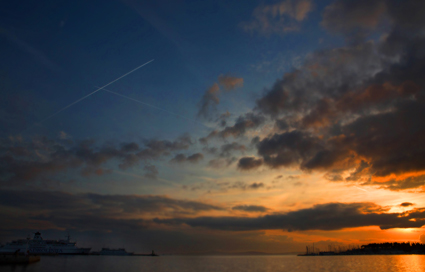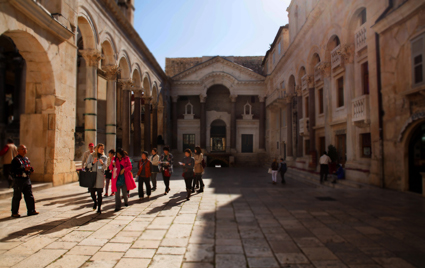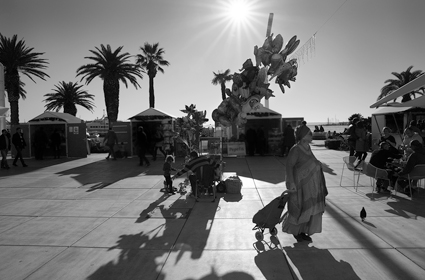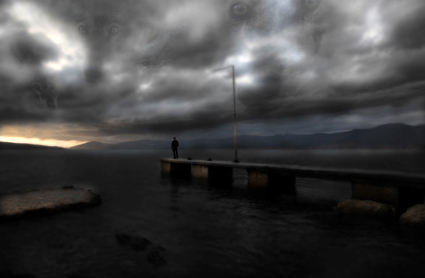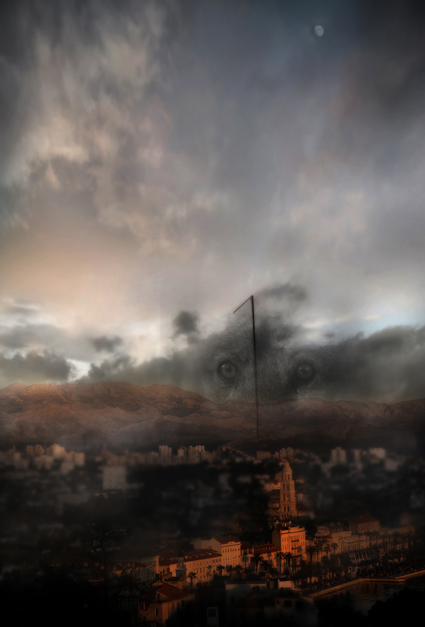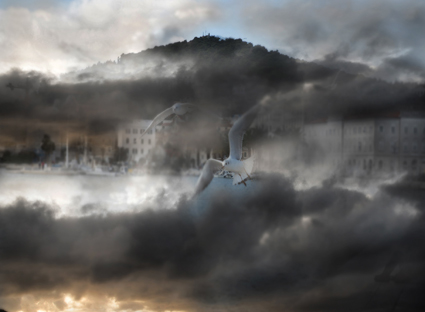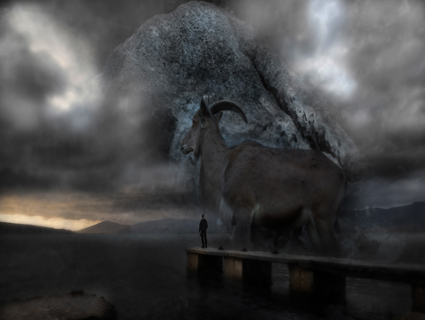Place: Split, Croatia
Split, Riva, criss cross, 2014
photo Peter Volich
Split, Riva, criss cross, 2014
We asked ex-pat photomedia artist Peter Volich for a photo essay of the city which he currently calls home. Eds. (Click images to enlarge.)
Reason for travelling
In 2011-13 I lived and worked in a remote Aboriginal community called Fregon, located in the Anangu Pitjantjatjara Lands (APY) of central Australia. I put my arts practice on hold and managed an art centre. Learning the language and some of the Pitjantjatjara customs made me question my own ancestry. After my father’s passing in 2013 I decided to retrace my own family ancestry and visit Croatia, at that stage purely as a tourist. Luckily for me I met my future husband and decided to relocate to Split, Croatia and start up my photographic practice again.
Peristil, Diocletian Palace, 2014
photo Peter Volich
Peristil, Diocletian Palace, 2014
Game of Thrones meets Paradise
Split is the second largest city in Croatia and the main port on the Dalmatian coast bordering the Adriatic Sea with its breathtaking islands. Split is steeped in a complicated but intriguing history. The old town and the major tourist draw card for Split is the Diocletian Palace built in 305 AD. The UNESCO listed palace consists of meandering alleyways, stone villas and many churches. Since the construction of the palace there have been architectural additions through the Medieval, Gothic, Renaissance and Baroque periods.
It is interesting to note that Split has archaeological findings that date back to the Ancient Greek colony of Aspálathos in the 4th century BC, which means that Split has been inhabited by Ancient Greek, Roman, Illyric, Venetian, Ottoman and Austrian/Hungarian Empires as well as Slavic tribes. Once you have been here you can understand why so many battles have been fought for the tiny piece of coast. The history of conflict in Split reads like something out of Game of Thrones, which is quite fitting seeing that the fourth season of the series was recently filmed within the old palace and neighboring village of Klis.
Split, Riva 1) Balloons 2) Christmas hut, 2013
photo Peter Volich
Split, Riva 1) Balloons 2) Christmas hut, 2013
Split is renowned for its breathtaking views, surrounding islands and idyllic mediterranean lifestyle. Over the last ten years it has become a hot spot for European tourists and more recently American, Asian and Australian tourists, which will only increase due to Croatia’s inclusion into the European Union in 2013. Apart from the stock standard archaeological and more tourist driven museums, of which there are many, there is a thriving contemporary art scene. The Croatian Artists Association has a dedicated gallery, Salon Gali?, that exhibits members from across Croatia and also coordinates the Split Art Salon which invites artists to respond to a curated theme. The Contemporary Visual Arts Biennale instituted in 1969 uses both gallery and public spaces to showcase the very best of Croatian contemporary art. The recent site specific exhibition in the bowels of the over 1700-year-old Diocletian Palace, albeit a logistical nightmare, proved a sight to be seen.
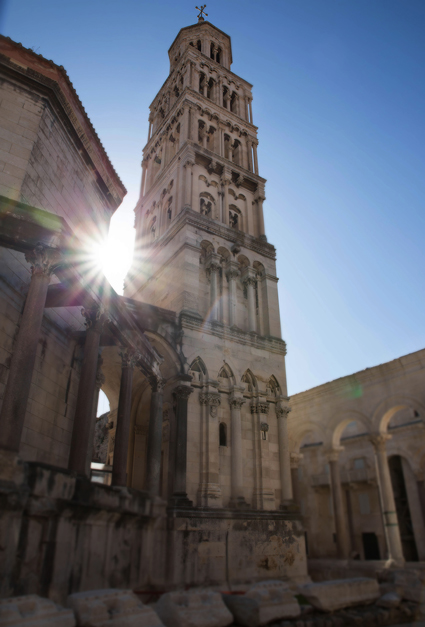
St. Duje, Diocletian Palace 2014
photo Peter Volich
St. Duje, Diocletian Palace 2014
The other major institution, Gallery of Fine Art, has a curated exhibition program showing both contemporary Croatian and European artists alongside an extensive permanent collection. The Australian artist James Newitt exhibited here in 2010, curated by the senior curator Jasminka Babić. The Arts Academy in Split has programs for most disciplines, notably for its film and animation stream. The Split International Film Festival is held every year in September and is now calling for submissions in June for new and experimental film. (http://www.splitfilmfestival.hr)
Split, in pictures
In my new work, Vukojebina (where wolves go to f$%&) I have created a portrait of Marjan Hill, interweaving both real and imagined story lines. Marjan Hill has been preserved as a site for recreation since the Diocletian Palace was built. For centuries the people of Split have enjoyed its beaches, forests and breath taking views of this peninsula of Split and surrounding islands.
The photo series takes inspiration from the local zoo located on Marjian Hill, spirit photography and photographic collage used in personal diaries and scrapbooks in the late 19th century. During summer the coastline of Marjan Hill is crammed with locals and tourists. The crystal blue water of the Adriatic sea carries ferry after ferry of tourists to the surrounding islands. After October, when the bura (winds) brings in the icy temperatures from the North, all the tourists leave, the coastline becomes desolate and life returns to normal for the locals. But this also means that many of the beachside bars, hotels and cafes close down. Everything is put on hold until the following spring when the frenetic tourism trade returns again like a circus.
Vukojebina (where wolves go to f%&$#), 2014
photo Peter Volich
Vukojebina (where wolves go to f%&$#), 2014
Vukojebina (where wolves go to f%&$#), 2014
photo Peter Volich
Vukojebina (where wolves go to f%&$#), 2014
Vukojebina (where wolves go to f%&$#), 2014
photo Peter Volich
Vukojebina (where wolves go to f%&$#), 2014
Vukojebina (where wolves go to f%&$#), 2014
photo Peter Volich
Vukojebina (where wolves go to f%&$#), 2014
Pete Volich is a Photomedia artist living and working between Split, Croatia and Perth, Australia. He has worked at numerous arts organisations in Australia including Kaltjiti Arts, Queen St Studio for Fraserprojects, Museum of Contemporary Art, Performance Space and artist assistant to Isaac Julien in London
Related articles
Activating art spaces
Gail Priest: Sam Chester, James Winter Queen Street/Fraserstudios
RealTime issue #91 June-July 2009 p21
RT Traveller: Sarajevo, Bosnia & Herzegovina
Taveller: Kym Vercoe, performer
RT Online 6 March, 2012


